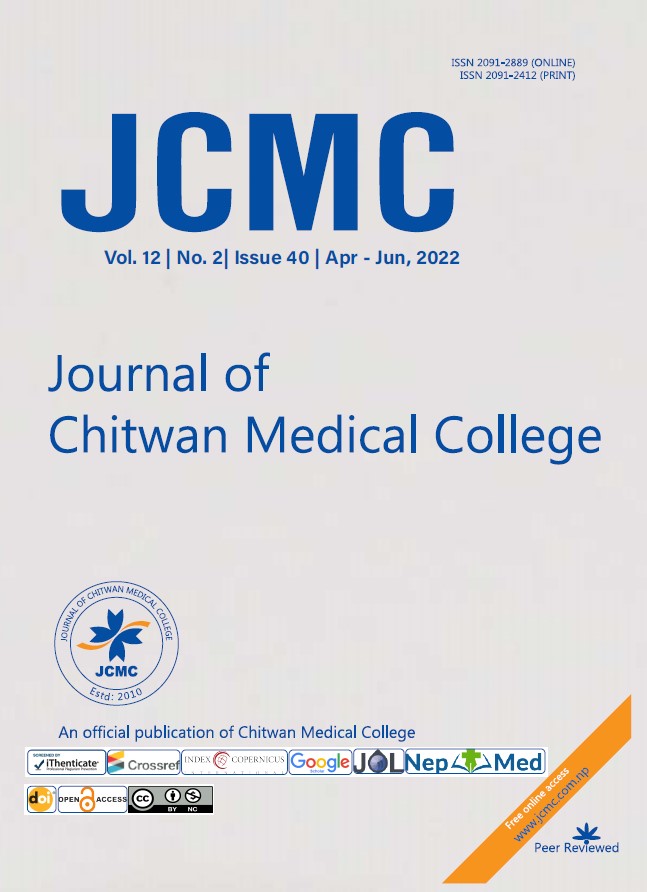KNOWLEDGE AND PRACTICES OF WATER SANITATION AND HYGIENE IN SLUM DWELLERS OF BHARATPUR METROPOLIS WARD NO 5
Keywords:
Water, Hygiene, Sanitation, SlumAbstract
Background: Access to Water, Sanitation and Hygiene (WASH) is a pre-condition for people to acquire good health, well-being and benefit from economic development. Slum dwellers are likely to be among the most deprived people for WASH in developing countries like Nepal.
Methods: A cross sectional study was conducted to find the level of knowledge and existing practices among slum dwellers of Bharatpur Metropolis Ward no 5. A total of 173 female household head were identified through census method and interviewed with semi structured interview schedule and analyzed with descriptive statistics by using SPSS 20.
Results: Nearly around two third of the respondents (65.3%) had good knowledge of WASH. Regarding the practices, the study showed that only 42 percent of respondents had access to piped drinking water in their premises and almost all households (94.8%) didn’t use any purification method for drinking water. In total 59 percent had latrine in their household and half of total respondents (52%) washed their hands with water and soap after defecation. Around 24.2 percent washed their hands regularly after touching garbage. In total 60 percent or respondents disposed solid waste properly in manure pit (8.7%) and government vehicle (30.6%) and15 percent disposed liquid waste in a pit. On bivariate analysis, age, marital status, and education was found to have significant association with knowledge of WASH (p<0.05).
Conclusions: Mass and family centered behavioral change educational programs at slum settings are urgently needed to raise knowledge and good practices regarding WASH.





